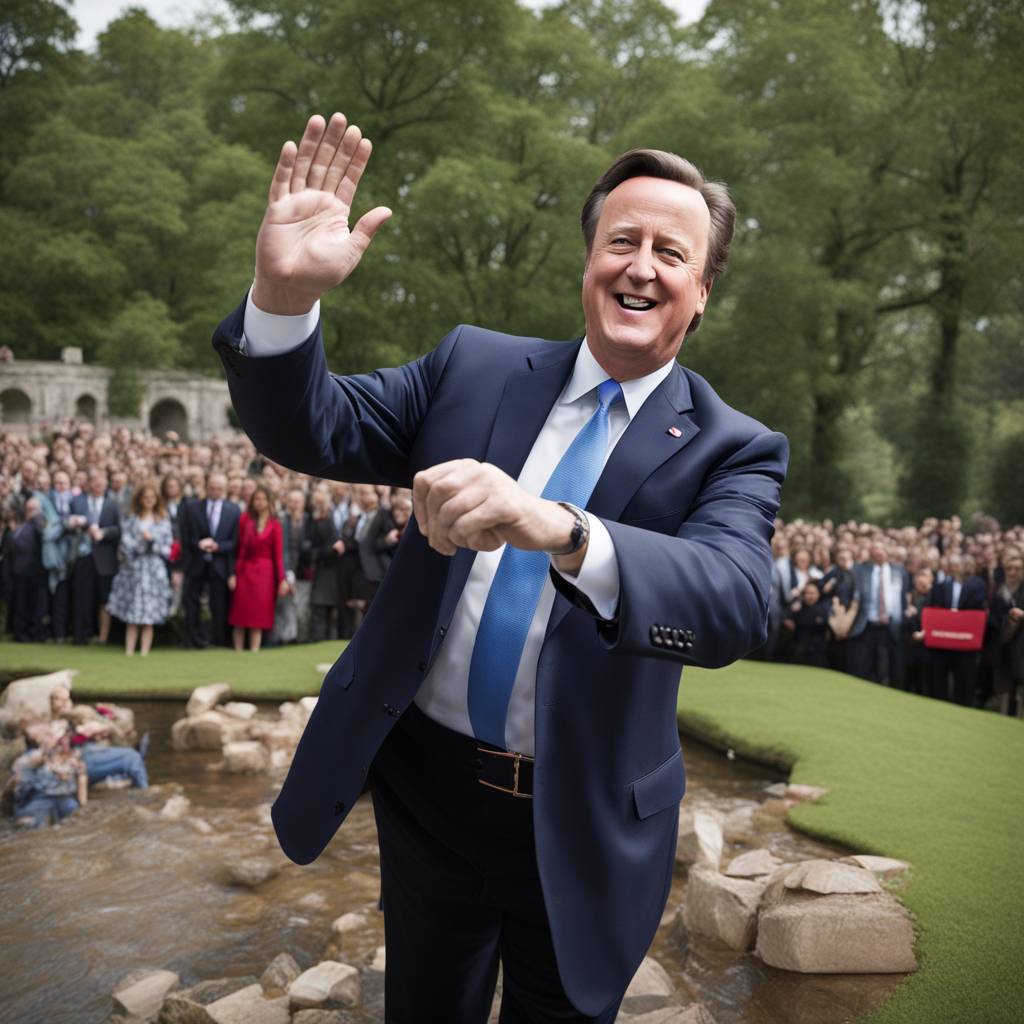When David Cameron, the British foreign secretary, recently visited Washington, his dinner meeting with former President Donald J. Trump in Palm Beach, Florida at Mar-a-Lago drew significant attention. Cameron’s visit was aimed at convincing Trump to support additional military aid to Ukraine, amidst reluctance from some House Republicans. This meeting highlights how the electoral calendar is influencing political dynamics on both sides of the Atlantic, as Prime Minister Rishi Sunak is occupied with an imminent election in Britain. By meeting with Trump, the presumptive Republican presidential nominee, Cameron aimed to engage with a former and potential future American president, despite Trump’s critical views on Ukraine.
During their meeting, Cameron and Trump discussed various geopolitical issues, including Ukraine and the Israel-Gaza conflict, among others. However, Cameron did not disclose whether he made progress in persuading Trump to provide more aid to Ukraine. Although the two leaders shared their mutual admiration for the late Queen Elizabeth II, Trump’s campaign statement underscored the need for NATO countries to meet defense spending requirements and end the violence in Ukraine. Cameron’s lobbying efforts in Washington have faced challenges, with some far-right Republicans opposing further aid to Ukraine, complicating the situation.
Despite the potential political risks, Cameron’s willingness to engage with Trump reflects his proactive approach to diplomacy. As Britain’s Conservative government trails in the polls ahead of a fall election, Cameron’s visit to Trump may be seen as a bold move to shape foreign policy agenda. Former diplomats believe that Cameron’s association with Trump might have mixed reactions in Britain, with some praising the engagement while others criticize Trump’s controversial policies. However, Cameron’s global network established during his time as prime minister enhances Britain’s foreign policy reach and impact.
Although Cameron and Trump have had differences in the past, including Cameron’s condemnation of Trump’s anti-Muslim rhetoric during the 2016 campaign, their recent meeting signals a pragmatic approach to diplomacy. Building on their discussions on pressing international issues, Cameron’s visit to Trump resonates with Britain’s historical adeptness at engaging with various political actors, even those with differing views. Given the stakes involved in U.S. defense of Ukraine and Europe’s security, Cameron’s efforts to influence American policy may prove more effective than trying to isolate Trump from European affairs.
In conclusion, Cameron’s meeting with Trump reflects the evolving dynamics of transatlantic relations as political calendars on both sides influence diplomatic engagements. Despite past differences and unpredictable reactions, Cameron’s outreach to Trump highlights his pragmatic approach in navigating complex international challenges. As Britain faces an upcoming election and questions surrounding foreign policy priorities, Cameron’s bold diplomacy and engagement with global leaders like Trump demonstrate a proactive stance to advance British interests on the international stage.








